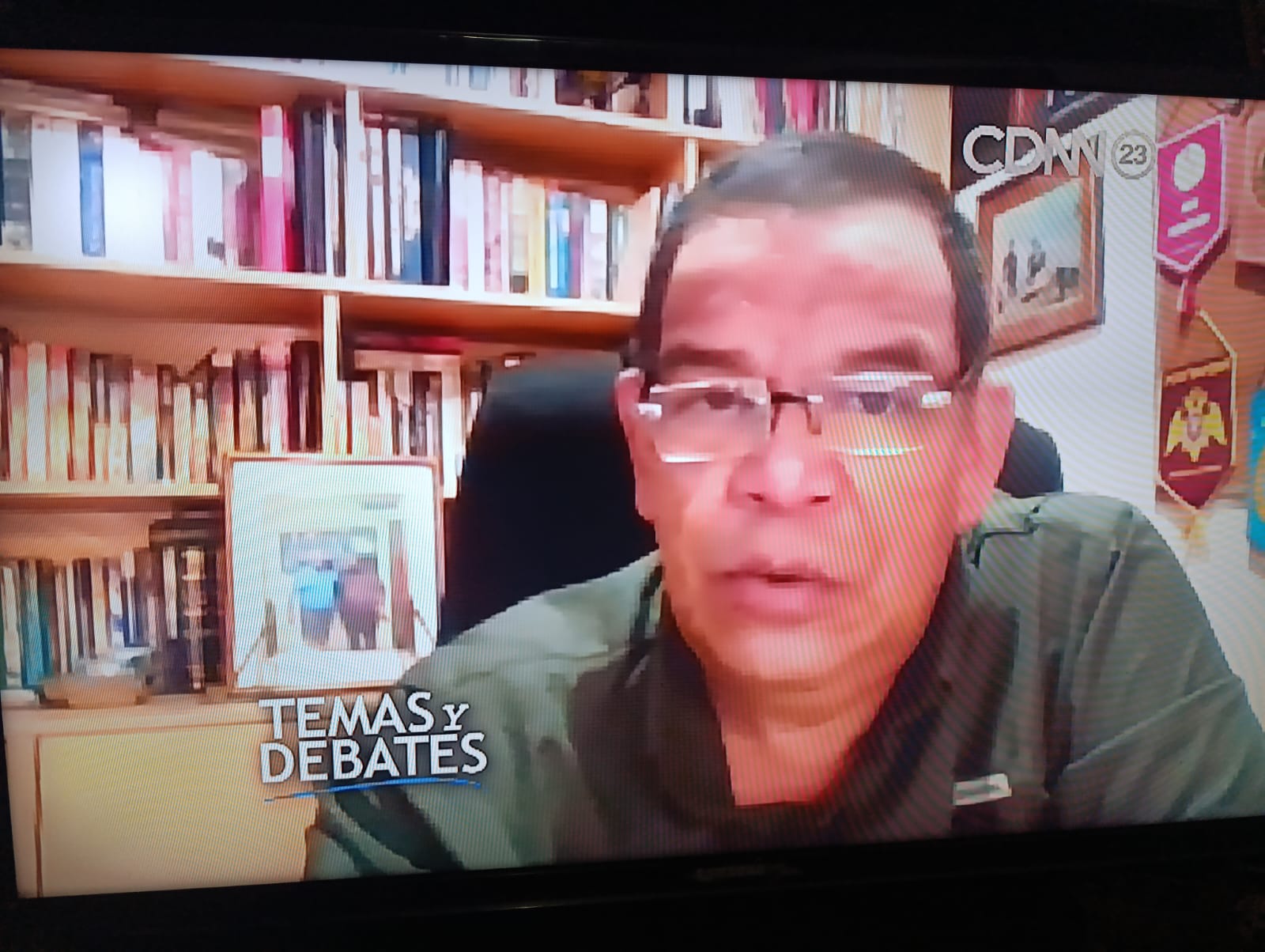
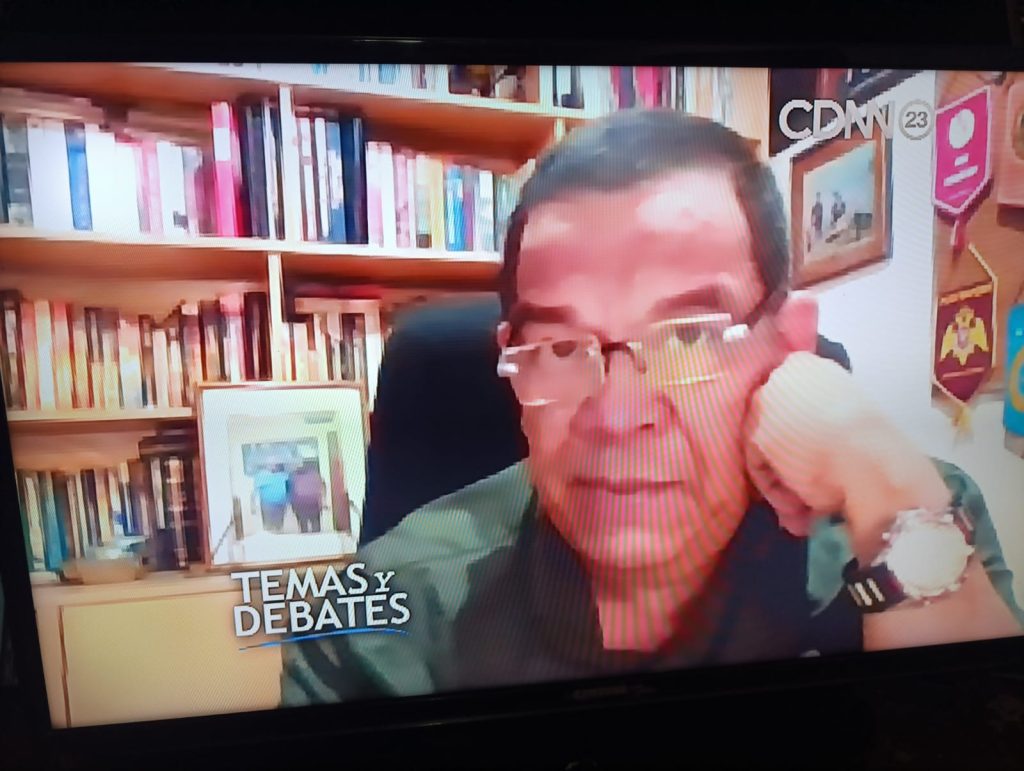
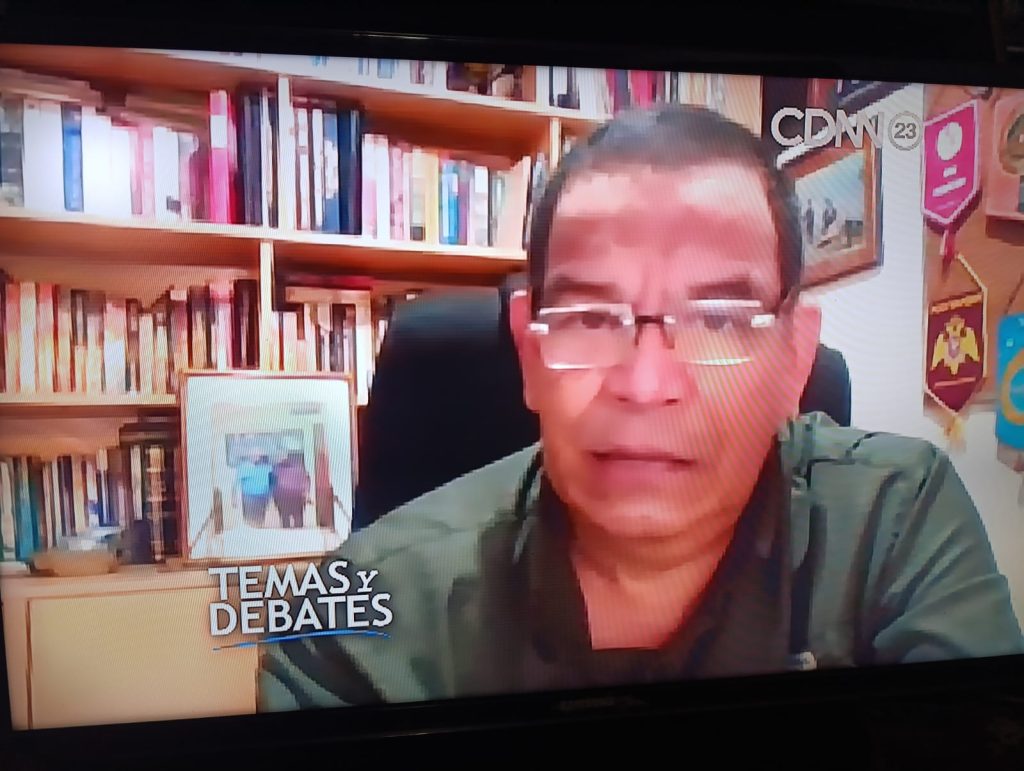
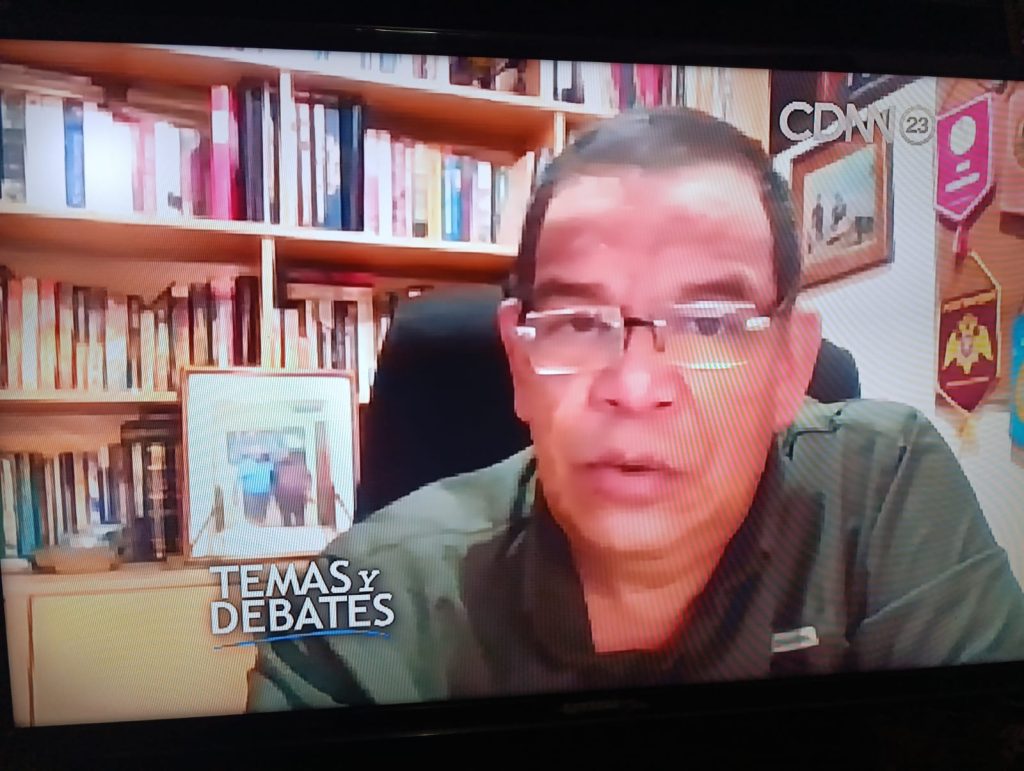




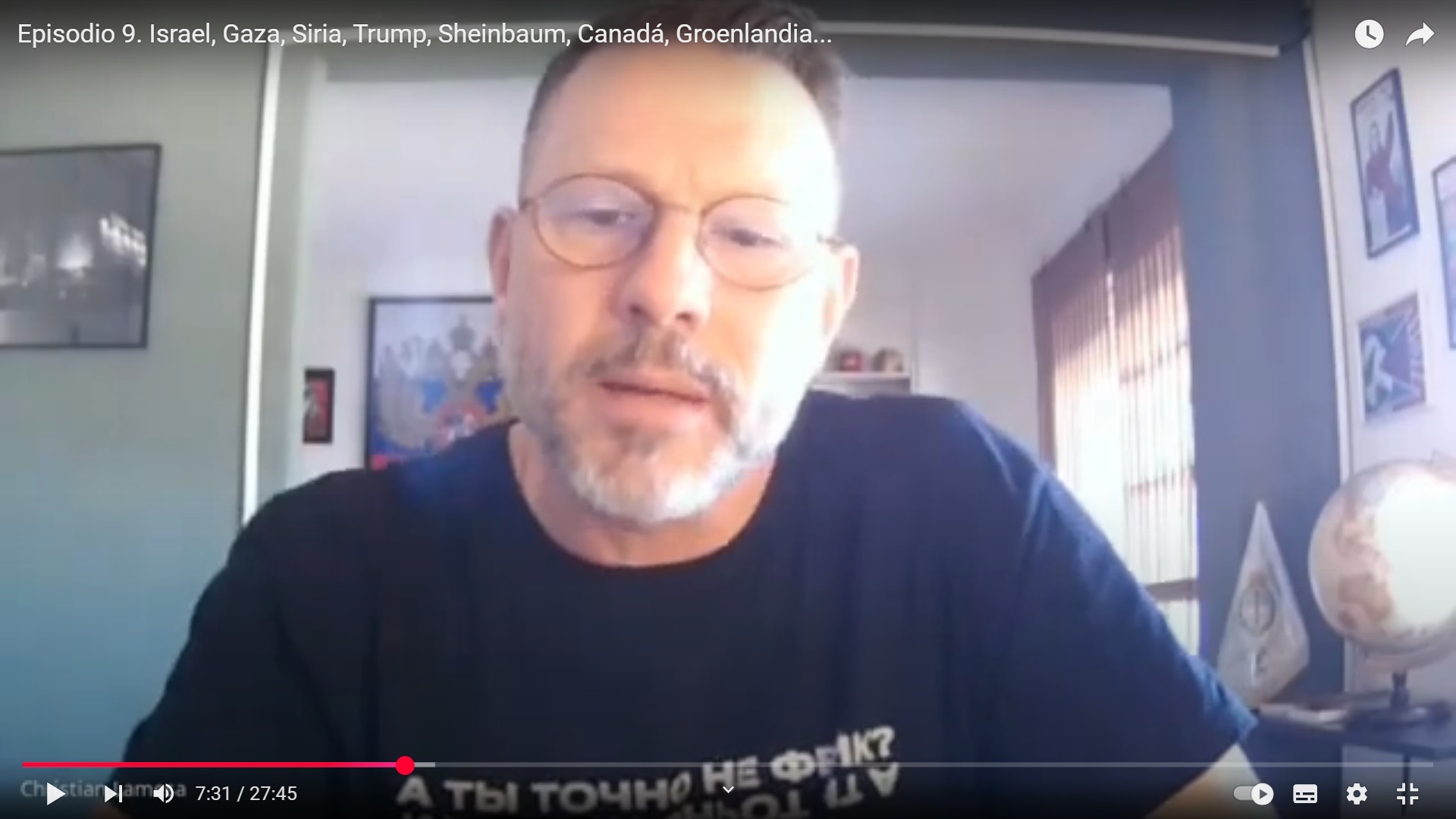
Por Christian Lamesa (Argentina) Destacado Analista Internacional colaborador del CREI
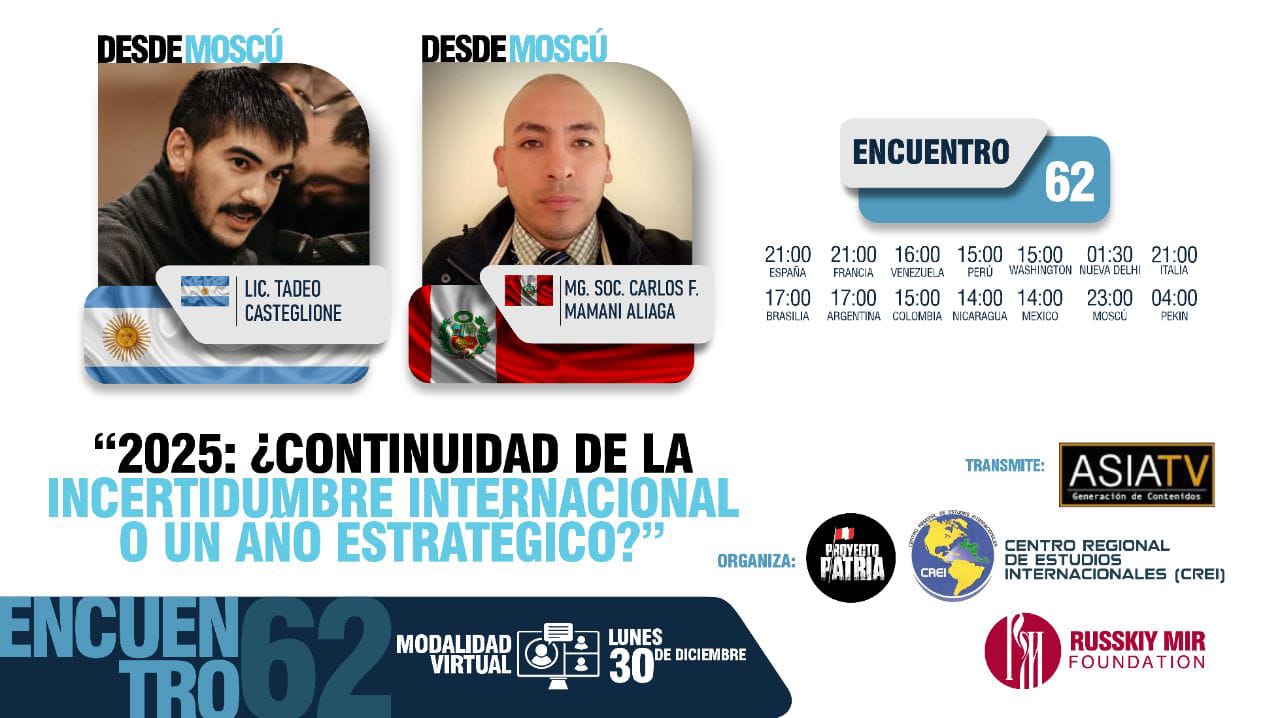
Suscríbete al canal de YouTube del CREI
Puntos Suspensivos CREI
👇👇👇
https://www.youtube.com/channel/UC4U7j-53WTn74qqjp5AYYmg
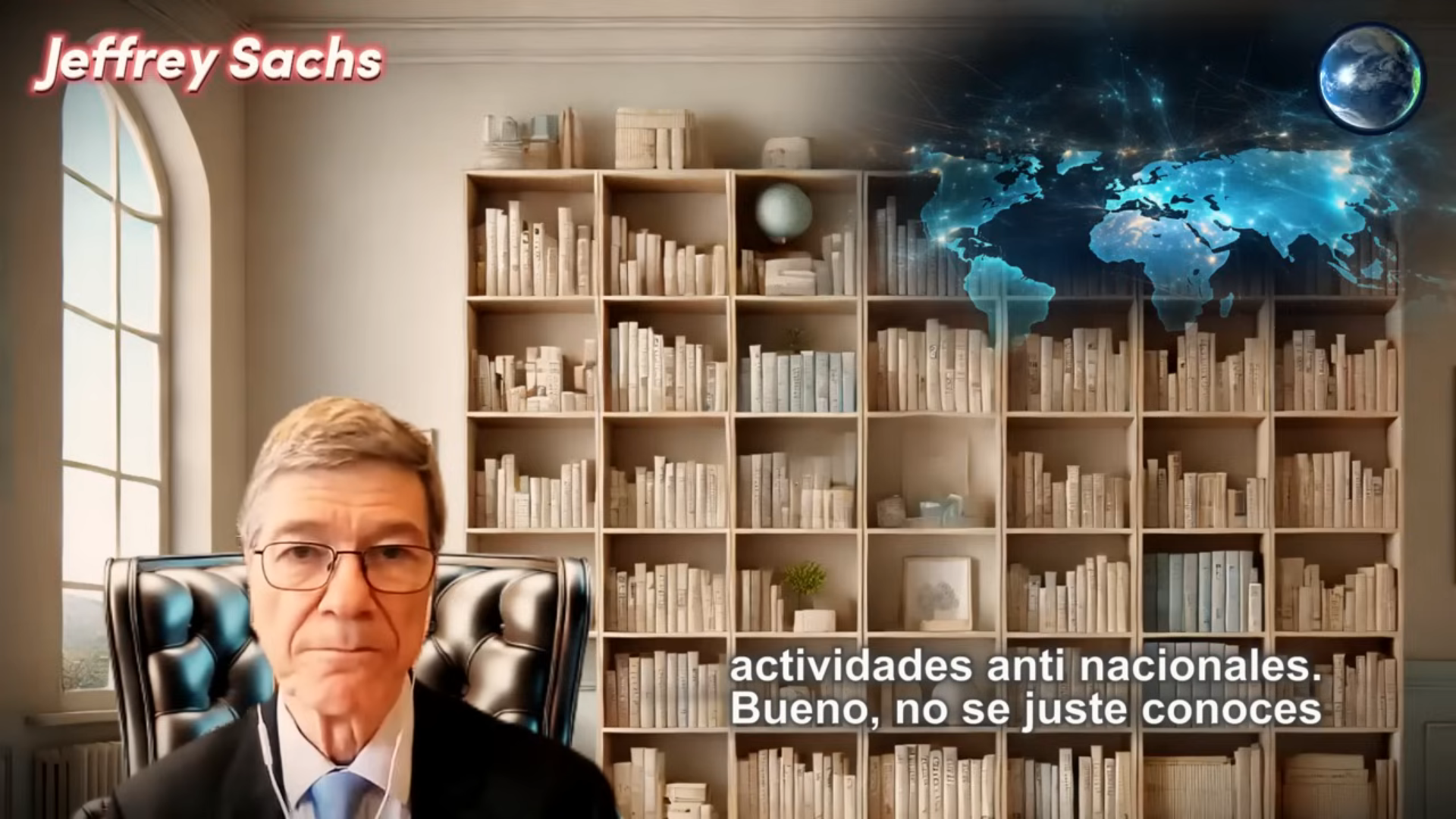

El director del Centro de Estudios Árabes e Islámicos del Instituto de Orientalismo de la Academia de Ciencias de Rusia, doctor en ciencias Nikolai Plotnikov, respondió a preguntas sobre la situación en Siria.

10 декабря руководитель ЦНАИ ИВ РАН д.п.н Николай Плотниковв прямом эфире программы “Пятая студия” канала Россия 24 ответил на вопросы о ситуации в Сирии.
https://cloud.smotrim.ru/s/ofyXYKPMG7Wfqdj
On December 10, the Head of CSAI IOS RAS Dr. Nikolai Plotnikov was interviewed about the situation in Syria in a live broadcast of the “Fifth Studio” program of the Russia-24 TV channel.
N. Plotnikov noted that Israel’s large-scale attacks on Syrian soil are linked to its fears that weapons belonging to the Syrian government army could fall into the hands of Islamists. More than 300 targets have been hit by Israeli airstrikes over the past two days. At the same time, a clash between Israel and Turkey on Syrian territory is unlikely.
There are currently two options for Syria: either the opposition comes to an agreement among themselves and creates a federal state, or the country is split, similar to Libya.
The Turkish-controlled opposition is pushing eastward along the border to create a buffer zone. Most likely, Ankara will occupy the north of Syria and begin to reform it according to Turkish standards, following the example of the “Al-Bab – Azaz – Jarabulus” triangle. The offensive is mainly in Kurdish territory; pro-Turkish forces have already taken the towns of Tell Rifaat and Manbij, where ethnic cleansing has begun. There is a struggle for territory and resources.
The new authorities will face serious problems in meeting the needs of the population. The leader of the terrorist organization Hay’at Tahrir al-Sham (HTS) has already been proclaimed emir. Recent changes in his image are linked to Julani’s ambitions and possible preparation for leadership positions.
Attempts to remove HTS from the list of terrorist organizations continue. UN Special Envoy for Syria Geir Pedersen said in an interview that HTS is a respected organization in Syria, but in order to be invited to a future conference on the Syrian settlement, HTS must first be removed from the list of terrorist groups. Similar views have been expressed in the US and the UK.
European countries have stopped accepting Syrian refugees, and Turkey has announced its readiness to send back the Syrians currently on its territory. The possible return of refugees to a devastated Syria could lead to another social explosion in the country.
To date, about 1 million people have been displaced in Syria since the events of November 27. The country is in a deplorable state and the rapid lifting of Western sanctions imposed on the country is unlikely.








El 3 de noviembre, el director del Centro de Estudios y Análisis Científico del Instituto de Orientalismo de la Academia de Ciencias de Rusia, N. Plotnikov, participó en el programa «Entre Temas» del canal de televisión «Zvezda». El experto compartió sus evaluaciones sobre las causas del agravamiento de la situación en Siria y las expectativas respecto a las acciones de la nueva administración de Trump en Medio Oriente.

https://tvzvezda.ru/video/programs/201808231539-wgb0.htm/20241231315-ycQpf.html/player
On November 3, Head of CSAI IOS RAS, N. Plotnikov took part in the program “Between Themes” on the Zvezda TV channel. Namely, he commented on the causes of the exacerbation of the Syrian situation and the new Trump administration’s expected course of action in the Middle East.
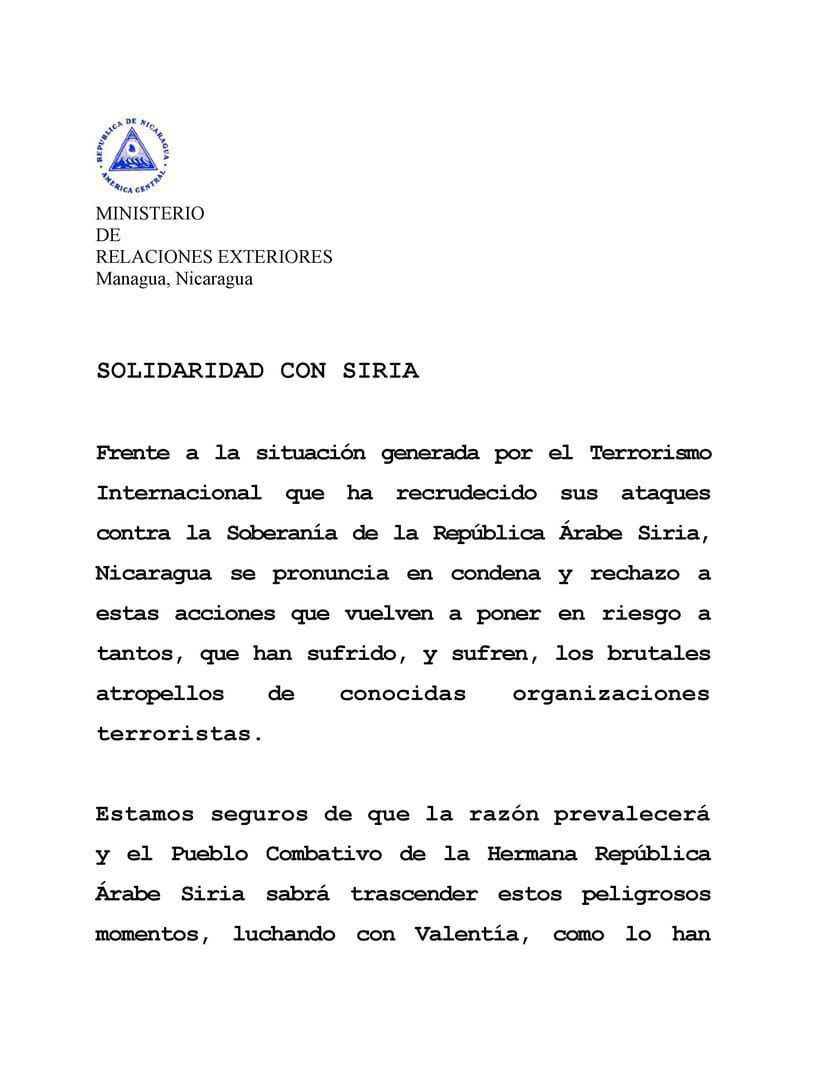
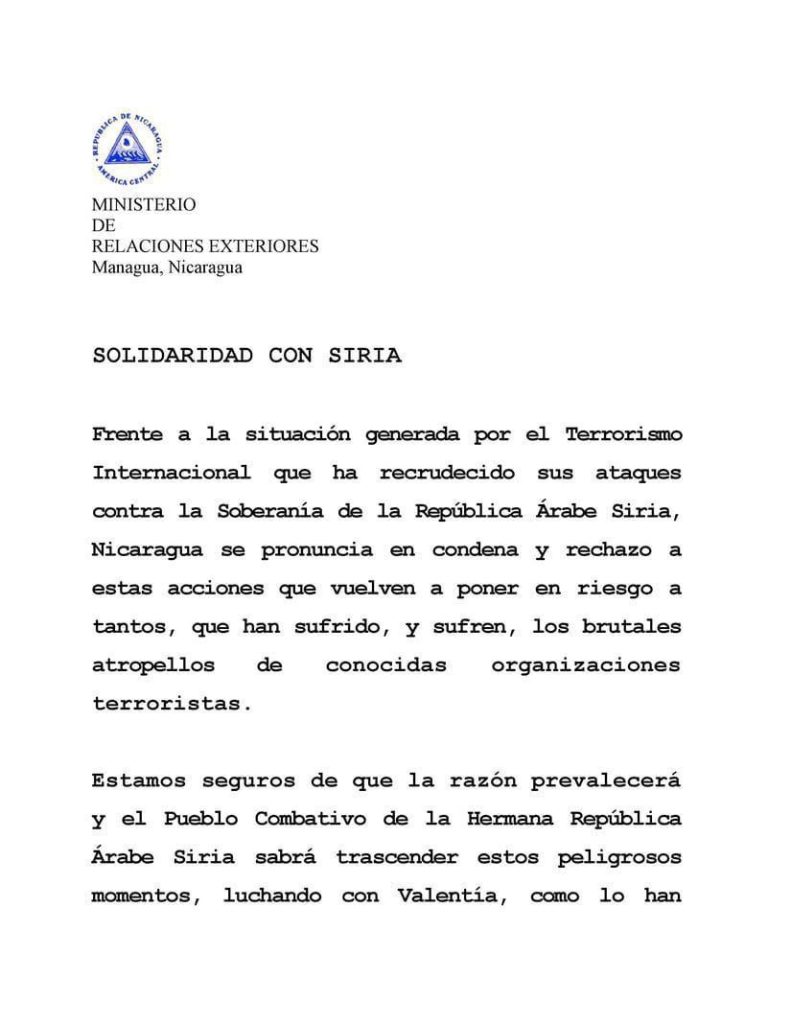
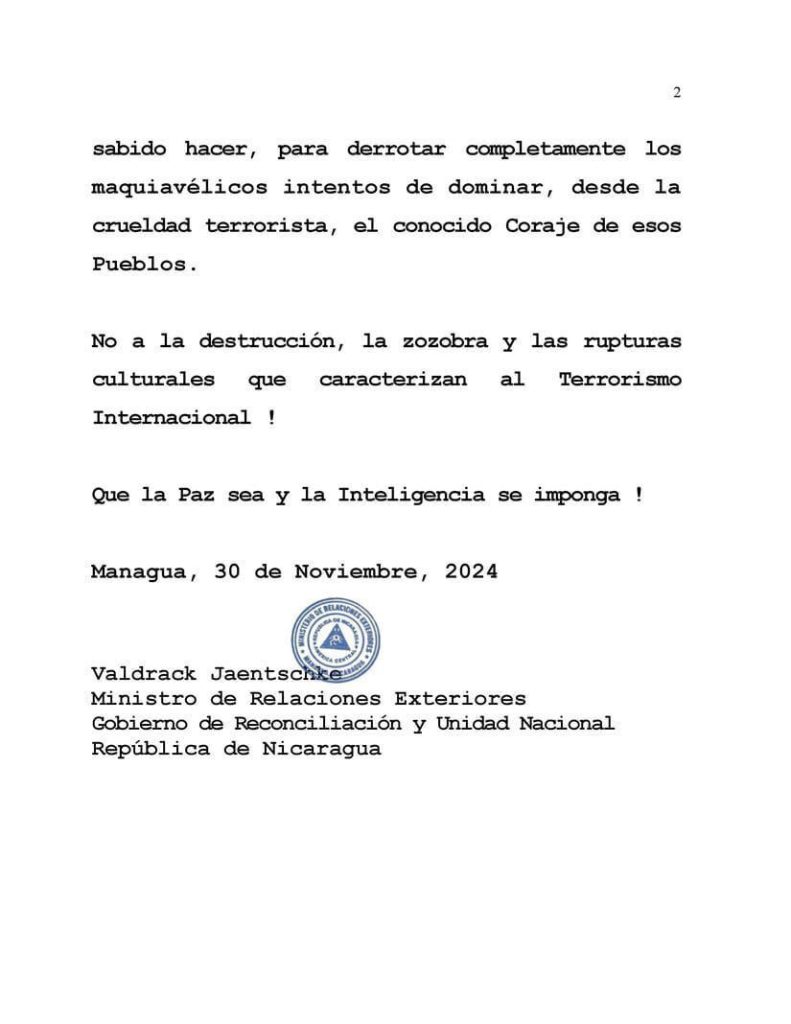

El 29 de noviembre, el director del Centro de Estudios y Análisis Científico del Instituto de Orientalismo de la Academia de Ciencias de Rusia, doctor en ciencias políticas N. Plotnikov, participó en una discusión con el periodista Serguéi Mardán en el canal de televisión Solovyov.Live. En particular, abordó temas relacionados con la situación actual en Siria y la Franja de Gaza.

https://disk.yandex.ru/i/9I2JVbCh56gnzQ
On November 29, Head of CSAI IOS RAS, Dr. of Political Science N. Plotnikov, took part in a discussion with the journalist Sergey Mardan on the TV channel Solovyov.Live. In particular, he touched upon such issues as the current situation in Syria and the Gaza Strip.
RUSSIAN ACADEMY OF SCIENCES
INSTITUTE OF ORIENTAL STUDIES

International scientific and practical conference
October 28, 2024
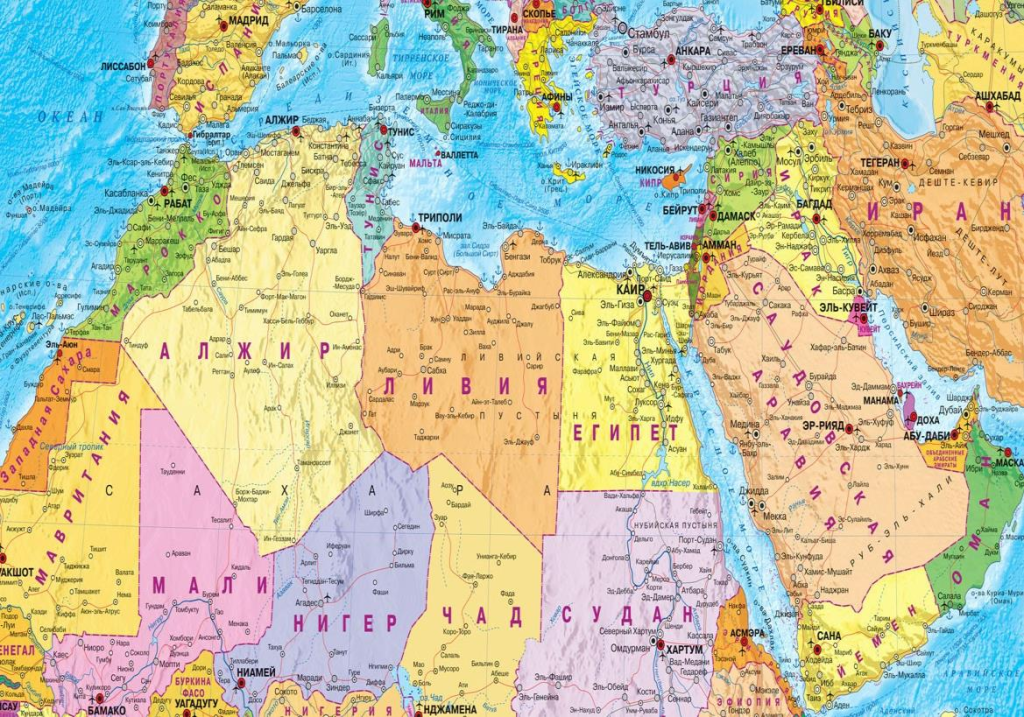

02.09.2024 Author: Nikolay Plotnikov
Nikolay PLOTNIKOV, Head of the Centre for Scientific and Analytical Information, Institute of Oriental Studies of the Russian Academy of Sciences, Doctor of Political Sciences, exclusively for the online magazine «New Eastern Outloo

Israeli Prime Minister Benjamin Netanyahu continues to drag his country into a war with no end in sight. Despite the fact that Israel razed the Gaza Strip to the ground and eliminated several Hamas and Hezbollah leaders, it did not come close to victory on either the northern or southern fronts.
According to the high-ranking US officials, cited by the New York Times, the Israel Defence Forces (IDF) did everything they could militarily in Gaza, yet still, they failed to destroy Hamas.
Rapid deterioration of the situation on the border with Lebanon
On August 25, the situation on the border with Lebanon sharply escalated. More than 100 Israeli Air Force fighter jets launched a pre-emptive strike on Hezbollah missile launchers in southern Lebanon. The IDF also intercepted several dozen drone strikes en route to the central part of Israel. Before that, Hezbollah sent 250 rockets and 20 UAVs at northern Israel in response to the assassination of its military leader Fuad Shukr.
According to Reuters, the parties exchanged information through intermediaries explaining their positions so as to prevent further escalation. The 12th Israeli TV channel confirmed that the Israeli leadership is optimistic about the possibility of a diplomatic solution to the crisis. Hezbollah leader Hassan Nasrallah said that the group may consider ending the current round of hostilities. Moshe Yaalon, the former chief of the IDF General Staff, who worked under Netanyahu, expressed confidence that Iran and Hezbollah were not interested in escalation and added that he could not say the same about the Israeli leadership.
However, Netanyahu is not satisfied with this course of events. He remains committed to an exclusively military solution to the problem. There are many in Israel who share his vision and are messianic. They support the followers of Ze’ev (Vladimir) Jabotinsky, the ideologue of revisionist Zionists, in their quest to do what they have always wanted and promised: to expel the Palestinians, as they believe, from the land of Israel.
Is Israel planning a Nakba part 2?
Apparently, to achieve this goal, militant Zionists (according to some sources, there are at least 2 million of them in Israel) intend to impose their vision on the United States and involve them in a large-scale regional war if they are prevented from implementing their project of forcibly expelling Palestinians (creating a second Nakba) from the West Bank of the Jordan River.
Benjamin Netanyahu is persistently playing the card of dragging Iran into this war. His first attempt was to strike at the Iranian diplomatic mission in Damascus and kill the IRGC general. Ended in failure. Iran’s retaliatory strike was symbolic and did not cause much damage to Israel.
The second attempt was the defiant assassination of the head of the Hamas political wing, Ismail Haniyeh, in Tehran. Netanyahu expects that if Iran responds to the assassination of Haniyeh and strikes back, then the United States will be forced to defend Israel and strike Iran.
Seeing that Iran is holding off and not succumbing to his ventures, Netanyahu may well decide on another plot under a plausible pretext: to launch a preemptive strike against Iran. The calculation of Netanyahu is still the same, thinking that the Americans will not be able to stay away in the event of Iran’s retaliatory actions.
If the United States vetoes a strike on Iran before the presidential election so that Kamala Harris does not lose and Iran does not take retaliatory measures for Haniyeh’s death, then Netanyahu may expand hostilities from Gaza to the West Bank to expel the Palestinians. To do this, he may well order a serious provocation in the area of the Temple Mount. For example, to set fire to the Al-Aqsa Mosque to provoke a Palestinian retaliation. At the same time, it should be borne in mind that the Israeli settlers in the West Bank, of whom there are more than 700 thousand (among whom there are tens of thousands that have US citizenship as well as an Israeli one), were handed a large number of small arms, distributed on the instructions of the Minister of National Security, Itamar Ben-Gvir.
For Netanyahu and his right-wing radical entourage, the worse the situation, the better. The revisionist Zionists need a crisis or confusion caused by the war to fully implement their Nakba 2 project. Among other things, this allows Netanyahu to stay in power – even at such a price.
As a result, the United States is trapped in its unconditional military support for Israel and Netanyahu does not have much time left to drag Iran into the war. As noted by Yossi Werther, a political columnist for Haaretz, for almost a year after October 7, 2023, Israel, under the leadership of Netanyahu, found itself in the worst strategic situation in its entire history.
As for Iran and Hezbollah, it seems that they understood the intentions of Netanyahu. Iran is unlikely to play by Netanyahu’s rules and is unlikely to enter into open confrontation with him. There are numerous signs that Tehran has chosen the tactic of attrition vis-à-vis Israel.
Nikolay PLOTNIKOV, Head of the Centre for Scientific and Analytical Information, Institute of Oriental Studies of the Russian Academy of Sciences, Doctor of Political Sciences, exclusively for the online magazine «New Eastern Outlook»
Tags: Confrontation between Israel and Iran, Iran, Lebanon, Middle East, Military conflict, Palestine, Palestinian Conflict
Related articles:
https://journal-neo.su/2024/09/02/netanyahu-is-provoking-a-regional-war